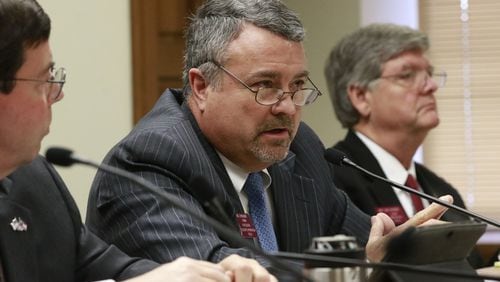Private colleges in Georgia would be prohibited from creating “sanctuary policies” — or rules prohibiting them from cooperating with law enforcement officers on immigration enforcement and other matters — under a bill introduced Wednesday in the state’s Republican-controlled Legislature.
Inspired by discussions at Emory University about creating a sanctuary on campus for unauthorized immigrants, House Bill 37 says private colleges that break the law would lose state funding, including scholarships, grants and loans for their students. Tens of millions of dollars are at stake.
Students and faculty from more than 100 universities have called on their schools to declare themselves sanctuaries since Donald Trump’s stunning upset in the presidential race. During his campaign, the Republican real estate mogul vowed to cancel an Obama administration program called Deferred Action for Childhood Arrivals — or DACA — which is temporarily shielding from deportation hundreds of thousands of young immigrants.
State Rep. Earl Ehrhart of Powder Springs, the Republican chairman of the House’s higher education financing panel, said his bill would apply to private colleges that “make a decision to effectively teach Lawbreaking 101.”
“This is not specific to immigration policy or anything else,” he said. “If they choose not to follow EPA policy or Labor Department policy or the laws of this state or the federal government, then the taxpayers are not going to place any tax money into their scholarships or research.”
About the Author








